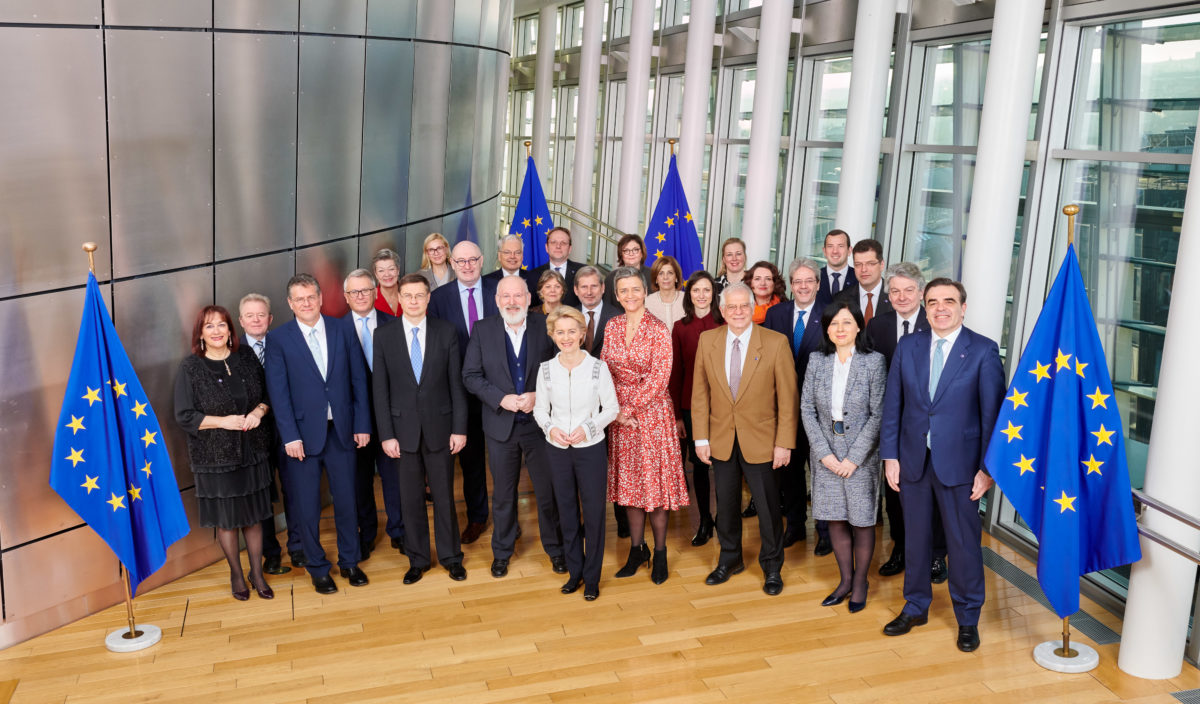Blockchain, virtual power plants (VPPs) and other data-driven renewable energy business models continue to make advances and were the theme of this year’s Digitale Energiewelt conference in Berlin.
However, a speech given at the event by Bianca Barth, head of EU policy at German energy association the Bundesverband Neue Energiewirtschaft (bne), illustrated the bind EU policymakers are in when attempting to drive a faster energy transition while protecting the data rights of citizens.
Barth spoke enthusiastically about the path EU policy is treading in terms of data privacy, in reference to the pending ePrivacy Regulation. That piece of legislation is intended to repeal Privacy and Electronic Communications Directive 2002/58/EC and work alongside the General Data Protection Regulation (GDPR) Regulation (EU) 2016/679, overriding it in the event of conflicts related to data privacy (lex specialis).
Contentious topic
The bne stated, in a position paper on the issue, the draft ePrivacy regulation “was developed with the much-needed and good intention of strengthening user rights in electronic communications and control over their data. However, the scope of the current draft regulations covers almost every form of electronic communication and does not distinguish between personal and non-personal data.”
“Excessively broad scope of application” could threaten the data-driven business models necessary for decarbonization of the energy system, says the bne. Such business models are almost entirely based on the bulk processing of energy consumption, load and weather data, among several other parameters. Processing that type of data would require consent by the end-user under the terms of the proposed EU draft legislation, a demand which would render VPPs and similar arrangements impracticable.
Almost all innovative business models in the energy sector are based on the processing of consumption, condition and measurement data collected by a wide variety of measuring devices,” Barth stressed. “The energy industry in transition to a decentralized energy system based on renewable energies with a multitude of actors and small plants depends on the use of these important data. This applies not only to the supply of electricity to household customers but even more so to energy services provided to commercial and industrial customers, some of which use only business data. Any business model related to sector coupling would most likely be affected, too.”
Exemptions?
Exemptions, limitations and derogations of such binding requirements are frequently applied in international law and the bne has proposed such a fix to Article 8 of the proposed law. The organization’s suggestion factual and business-related data concerned in energy transition business models be exempted from the end-user permission requirement has been backed by 80 industry bodies.
“Indeed, since engaging with policymakers on the ePrivacy [draft] the energy industry has achieved small text improvements with regard to innovative business models over the course of the last 1.5 years,” the bne official pointed out. “In particular, the broadening of the exemption in Art. 8 (1) (c) would solve some concerns. However, there still was quite some uncertainty in the text and not all problems had been solved.”
As Barth pointed out in Berlin yesterday, the European Council seems unwilling to grant wider exemptions for fear it would open the floodgates and ensure every industry is going to come to want exemptions. “Even after two years of negotiations, the Council of Member States could not reach an agreement on the extremely complicated text proposal put forward by the Commission,” Barth explained. “During a COREPER (Committee of the Permanent Representatives) meeting on November 22nd, 2019 more than a dozen Member States rejected the latest text proposal on which the Finish Presidency has been working hard to achieve acceptable compromises. A number of Member States are suggesting a fresh start.”
The resulting stand-off appears set to provide an early trial of strength for the newly-appointed European Commission headed by Ursula von der Leyen. The former German defense minister was elected as President of the European Commission on a pledge to deliver a European Green Deal aiming for carbon neutrality across the bloc by 2050. Von der Leyen has also put digitalization high on her agenda and the ePrivacy Regulation is part of her work to achieve a Digital Single Market.
Any move seen as potentially watering down EU citizen data rights may prove unpopular with executive VP Margrethe Vestager, the Dane whose popularity rose as competition commissioner after she brought anti-trust actions against the U.S. corporate behemoths of Google, Amazon, Starbucks, Qualcomm and Apple. Discussion of the ePrivacy law between Vestager, tasked with making “Europe fit for the digital age” and fellow commission VP Frans Timmermans – who is charged with delivering the European Green Deal – could prove lively.
Newly-appointed internal market commissioner Thierry Breton did little to resolve the impasse recently, when he told the European Council committee for transport and telecommunications: “We’ll have to put a new proposal on the table because I definitely think that everybody wants to do something but obviously you are not in agreement.”
Quizzed in a subsequent press conference, the commissioner rowed back and insisted all options were still open, including implementing the legislation in its current form.
“Out of the 3 available options: (1) Restart the effort and draft completely new text (possibly in combination with the GDPR review that is scheduled for 2020/2021 anyways), (2) continuing to work with the latest text, (3) give up on the initiative; the latter is not very likely. The 2nd option is questionable but has not been ruled out yet. During an event on December 5th in Brussels, Mr. Boratynski, Head of Unit Cybersecurity and Digital Privacy Policy at DG CNECT, remained vague given that, according to his Commissioner Breton, no decision has been taken so far. However, he stressed that Commissioner Breton wants to act fast, but needs a clear(er) Council position for that. He will talk to the Member States and the upcoming Croatian Presidency,” Barth listed.
As the bne’s Barth pointed out in Berlin, the problem with an ePrivacy law intended to offer privacy safeguards to personal messages sent on platforms such as WhatsApp is its all-encompassing nature, twinned with the fact any pragmatic, environmentally necessary amendments to it run the risk of being seized upon by the media as kowtowing to the Silicon Valley internet giants.
Over to you, Ms von der Leyen.
This content is protected by copyright and may not be reused. If you want to cooperate with us and would like to reuse some of our content, please contact: editors@pv-magazine.com.




By submitting this form you agree to pv magazine using your data for the purposes of publishing your comment.
Your personal data will only be disclosed or otherwise transmitted to third parties for the purposes of spam filtering or if this is necessary for technical maintenance of the website. Any other transfer to third parties will not take place unless this is justified on the basis of applicable data protection regulations or if pv magazine is legally obliged to do so.
You may revoke this consent at any time with effect for the future, in which case your personal data will be deleted immediately. Otherwise, your data will be deleted if pv magazine has processed your request or the purpose of data storage is fulfilled.
Further information on data privacy can be found in our Data Protection Policy.